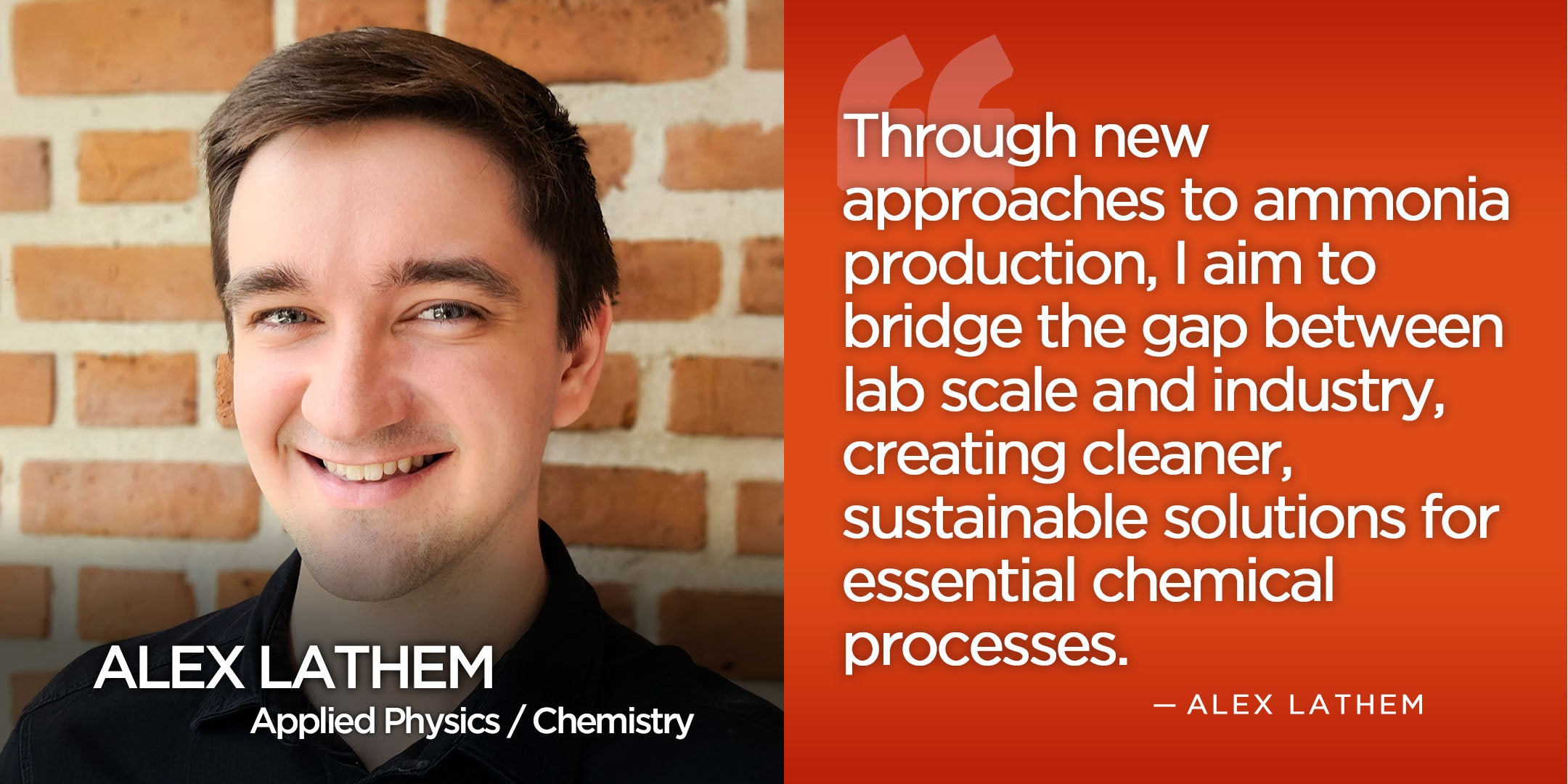Meet Alex
- Department: Applied Physics, Rice Natural Sciences – Department of Chemistry
- Year in Graduate School: Fourth year
- Expected Graduation Date and Degree: Doctor of Philosophy (PhD) in Applied Physics/Chemistry, expected February 2026
- Hometown: Westlake, Ohio
Research Focus
What is the overall problem your thesis will help to address?
About half of the world’s population is fed by agriculture that uses ammonia-based fertilizers. This project aims to make ammonia production cheaper and cleaner by using an electric arc underwater.
Could you add scholarly depth for a specialist in your field?
The high-temperature electric arc allows for the direct breaking of the N₂ triple bond and bonding with hydrogen radicals. The cold water environment quenches the products and serves as a solvent to store the ammonia product.
Research Outputs and Impact
Describe any products from your work so far that you’d like to highlight:
Not yet, although we are hoping to have written products available soon.
Are there any publications or creative scholarly items coming out soon that RSI can highlight?
This work is part of my M.S. thesis, which will be published soon. An article will hopefully be published next year.
Is there any funding your advisor or you would like to acknowledge?
We would like to acknowledge the gracious support of the Engineer Research & Development Center from the Army Corps of Engineers.
Sustainability and Future Directions
What do you see as the most pressing sustainability challenge the world is facing?
The world continues to struggle with adopting pure electric and high-efficiency production processes. Ammonia, for example, is one of the most common chemical products in the world. Yet, the most cost-effective (and therefore the most common) method by far to produce ammonia is the Haber-Bosch process, which is over 100 years old. The process requires very high pressure and produces more CO₂ than ammonia. There have been dozens of new methods discovered to produce ammonia, but none have been able to scale up economically. This same story can be found in fields like hydrogen production, concrete production, mining, and so on. It seems like we are so close to cleaning up many vital industrial processes, but we’re not there yet.
How do you envision your research contributing to solving sustainability challenges?
I hope that my research can help cross this gap between laboratory scale and industry. There are so many ways to make chemical reactions happen, and we should always explore new approaches to see if any of them can break this sustainability barrier.
What are your career aspirations post-graduation?
I hope to use the skills and knowledge from my PhD at Rice to work in industry, hopefully contributing to efficient and sustainable production methods.
Is there anything else you would like to share about your research or achievements?
I am very grateful to RSI for the support and opportunity to share my work! Hopefully, the public will be able to see more progress in this field soon.


